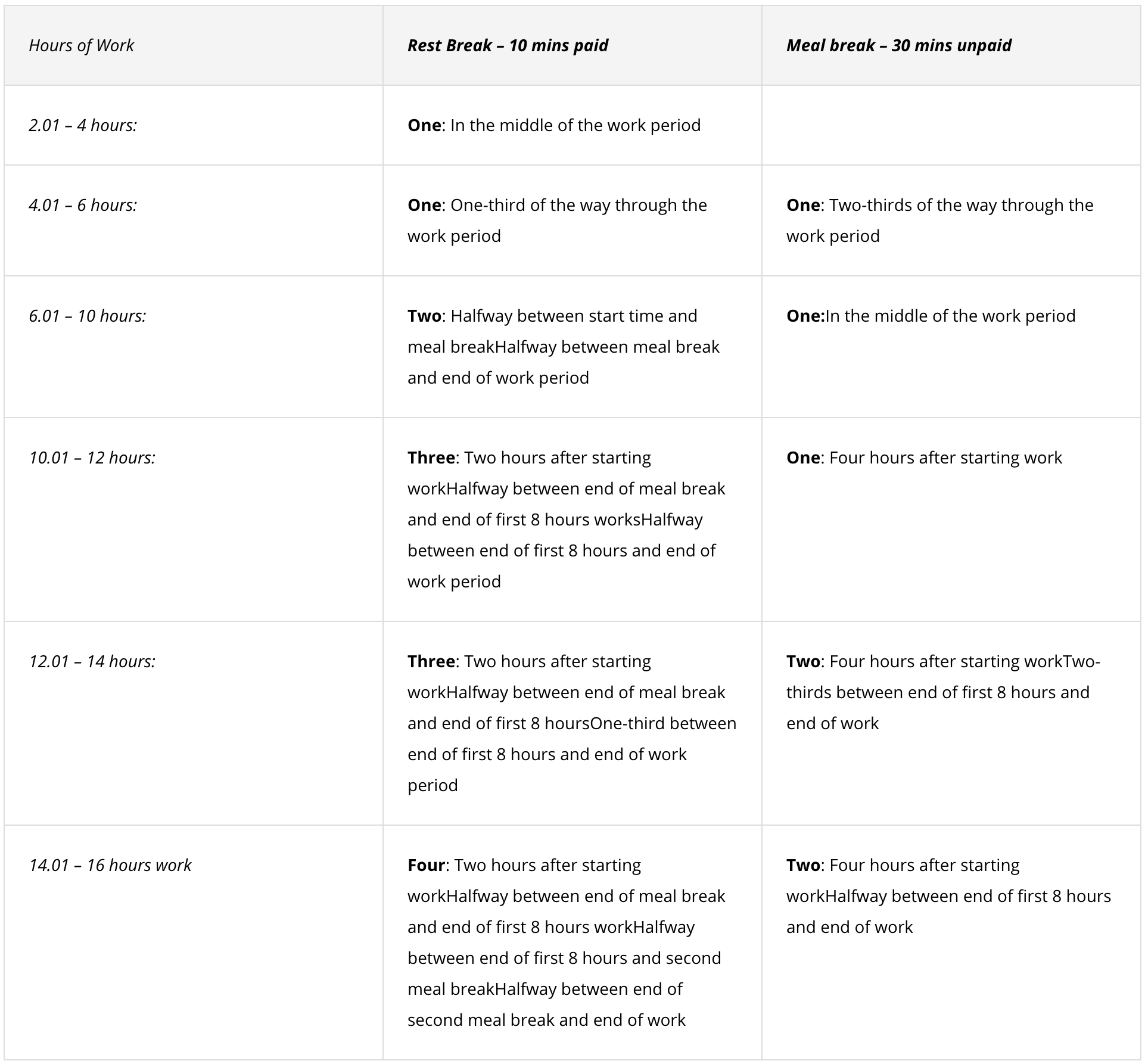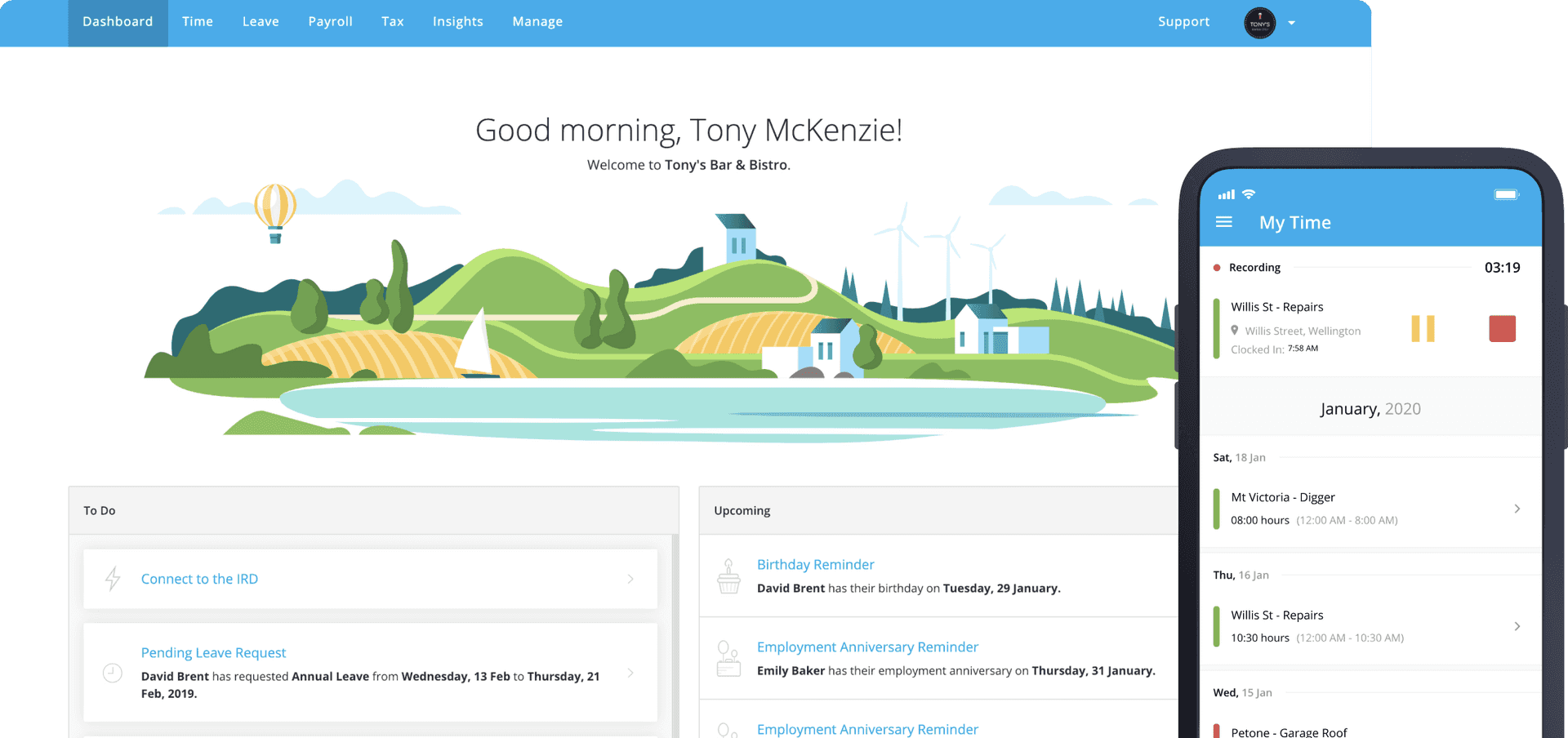Team Management
Q & A – Rest & Meal Breaks for NZ Employees
New Zealand employers must provide their staff with paid rest and unpaid meal breaks. The number and duration of breaks depend on the hours worked. The rules around breaks were updated in an amendment to the Employment Relations Act in May 2019.
Wondering how this affects your business? We’ve got you covered with a summary of the key things you need to know, so pour yourself a cuppa and have a read.
What are the rules around paid breaks in New Zealand?
New Zealand Employees are entitled to paid rest breaks and unpaid meal breaks after working for a certain number of hours so that they can rest, eat and take care of personal matters.
Rest breaks must be at least 10 minutes and must be paid for. Meal breaks must be at least 30 minutes, and are unpaid. The number and types of breaks that an employer must provide depends on the length of the employee’s working day.
This is set out in the Employment Relations Act (ERA), and the laws surrounding rest and meal breaks were updated on 6th May 2019.
When should breaks be taken?
When scheduling breaks, it’s a good idea to work out meal times first, then rest times. It helps if breaks are spread evenly across the work period.
It’s best to agree upfront with employees when they’ll take breaks, so that the timing suits both your staff and your business circumstances. We suggest recording the length and timing of breaks in the employment agreement.
What are the employer responsibilities?
Employers must:
Give employees at least the minimum number and length of breaks specified in the ERA
Try to come to an agreement with employees about when to take breaks
Be fair when working out the times and numbers of breaks – it’s important to spread breaks evenly across the work period
Pay employees for their 10-minute rest breaks – if it’s agreed that the employee can take longer rest breaks, employers only have to pay for the first 10 minutes
Factor in enough breaks for employees who are doing shifts, overtime or working on commission
Ensure employee working on variable rates (such as piece rates) are paid for their break based on the rate of pay employees would have been receiving at the time of the break
Make sure employees doing physically hard work get enough breaks to avoid overtiredness.
Employers must not:
Give compensation for unused rest breaks, such as paying employees extra or letting them leave early
Refuse to let employees take breaks
Ignore the risks posed by overtired employees (this will vary from business to business)
What if there are disagreements?
If an employee believes they’re not being allowed to have the breaks they’re entitled to, they should first raise this issue with their employer.
If an employer and employee are unable to agree on matters surrounding break payment and times, they can contact Employment New Zealand for mediation. If mediation is unsuccessful, the Employment Relations Authority can determine the matter.
While there is no legislation that requires rest and meal breaks to be recorded, employers may want to keep track of when breaks are taken in case any disputes arise.
Are there any exceptions?
There can be exceptions to the agreed timing in certain circumstances, for example if public safety will be put at risk or there is no-one suitable available to provide cover. If the employer is engaged with New Zealand’s security or in an essential service (defined in schedule 1 of the ERA) they may be exempt from providing these set rest and meal breaks, and can provide compensation instead.
What if my employee and I can’t agree on break times?
If you need guidance or an agreement cannot be made, the default timing set out in the Employment Relations Act (ERA) is as follows:
Default Break Entitlements:

How can I manage paid and unpaid breaks in my payroll system?
PayHero customers using the Photo Time Clock can automatically track paid and unpaid breaks in the app. When your staff take breaks, PayHero will figure out if the break should be a paid 10-minute rest break or an unpaid 30-minute meal break.
To activate this feature, check out the Paid & Unpaid Breaks support article.
Where can I get more info?
For more information about rest and meal breaks, head to Employment New Zealand or business.govt.nz.






